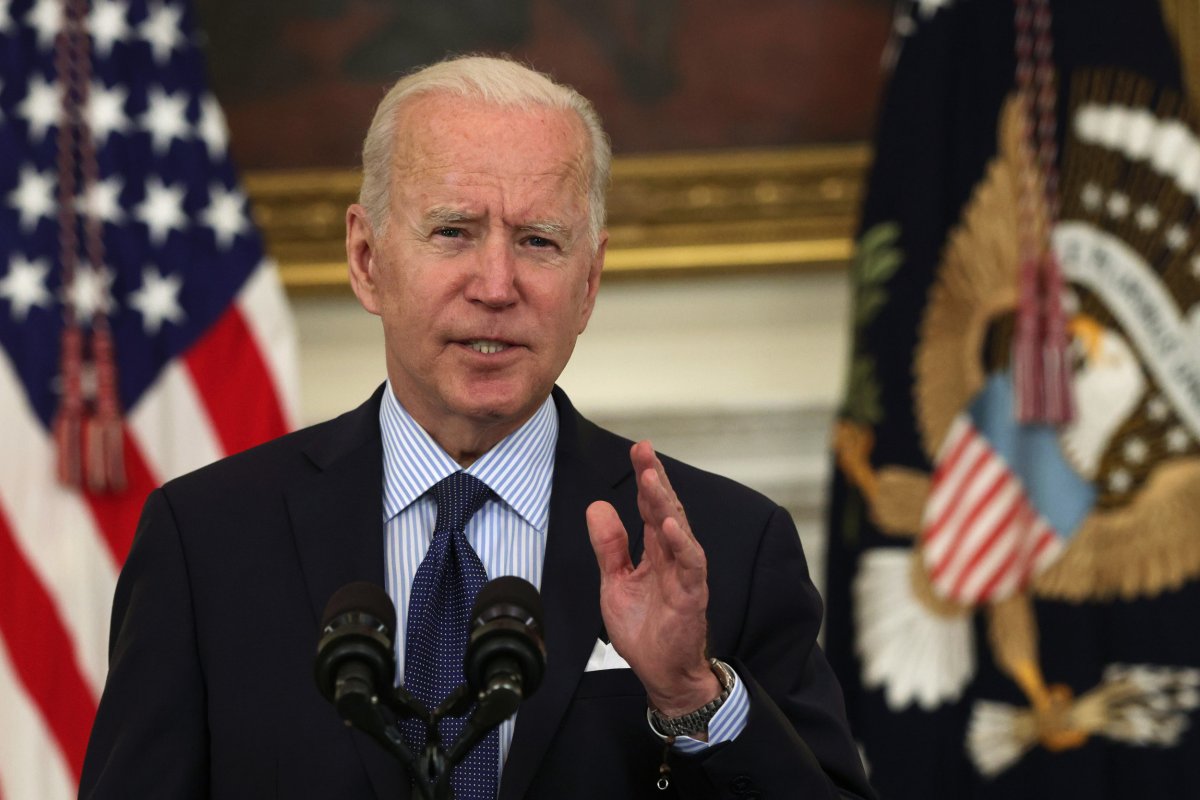President Joe Biden's paid family and medical leave plan would grant workers 12 weeks of paid leave, time that could be used to "bond with a new child," among other needs.
When I heard about the proposal, what immediately came to mind was an old photograph I discovered recently of my mother lovingly holding my newborn self; seeing it had been a revelation—and a confirmation of why I'd always known how much I was loved, despite having a difficult childhood. I'd previously thought the degree of my mother's love helped cushion me from the impact of an absent father, an angry stepfather and an awkward teenage-hood; now it made me wonder about the power of love as protection.
What does science say about the long-term effect of good early parental bonding on an infant—and is it why some are able to navigate life's turbulence relatively unscathed, while others seem to bear more significant bruising?
"Early adversity can absolutely confer a vulnerability for psychiatric disorder onset in adulthood because the neural systems that regulate stress reactivity, motivation and impulse control all develop in the early life period," said Danielle Stolzenberg, an associate professor of psychology at UC Davis who runs a laboratory investigating epigenetics and maternal behavior. "These developing systems are sensitive to input from the environment, and for mammals. The early life environment is dominated by mother-infant interactions."
The evidence is coming out of a field called epigenetics—the study of how environmental experiences can produce lasting changes in how our genes are expressed. Instead of changing the actual DNA itself, small chemical tags can be added or removed in response to changes in an individual's environment. These tags turn genes on or off, as a way to adapt to situations, but potentially could last long-term.
"Although the relationship between early infant attachment and adult psychological health has long been appreciated in humans, most of what we know about how the early life experiences cause alterations in brain development comes from studies done in rats and mice." Stolzenberg said.
Researchers delving into the effect of mother-infant bonding in rodents found that mom's behavior actually changes how the baby rodents' brains express their DNA. Bonding—in the case of rodents, being groomed a great deal by the mother—can program the expression of genes that regulate stress reactivity for the rest of the baby's life, often making them more resilient and less likely to be anxious in adulthood. Additionally, research reveals that epigenetic changes can be passed down to the next generation: female pups who are mothered attentively, mother their babies well, too. Early experience with mom programs the expression of genes in the developing brain that will ultimately regulate maternal care in adulthood. Essentially, a rat that has been well-mothered has its grandmother to thank.
Stolzenberg, who has spent her entire career studying mothering behavior, said she continues to be fascinated by what good mothers mammals are. According to her, rats and mice, like 95 percent of mammals, are raised exclusively by their mothers. She noted that mother rats are naturally highly motivated to be with their infants at all times—that it appears difficult to turn good mothering off, with the notable exception of when the mother loses access to the resources she needs to care for her young.

In studies where the mother's bedding—needed to make a nest—is removed, mothers subsequently provide inconsistent care and may even neglect or abuse their babies. Once resources are returned, behavior quickly reverts back to attentive. Incredibly, while the mother's abuse depends on the removal of resources, the female pups who experience mistreatment will grow up to mistreat their infants—even if they have full access to resources.
Although evidence for the causal role of programmed gene expression in adult behavior comes from scientific studies done in rats and mice, there is evidence that some of the same epigenetic (DNA methylation) changes that program genes involved in stress reactivity—such as the glucocorticoid receptor gene—are also found in humans. This is compelling evidence that human babies may be similarly affected on a neural level by the quality of their parental bonding experience.
A 2009 study specifically examined brain tissue from adults who experienced early life abuse and then years later completed suicide—and it shared similar methylation changes to those rats who had been deprived of early parental bonding and displayed anxiety-like behavior.
On one hand, this news is a relief: One of the most important things we can give our babies is love—something that should be free. But we know the reality is quite different: time off is expensive, resources are costly and therefore, underserved communities go without more than others.
One estimate reported that a typical working adult loses $9,500 after taking 12 weeks off without pay. What more convincing evidence could there be to justify better social programs to support families, like the one outlined in Biden's plan, than evidence that a good parental bond (or lack thereof) can actually alter the brains of our next generation? And that abuse due to lack of resources can be reversed almost immediately once those resources are restored? How much misery could be avoided? How much could be saved?
As I look at the photo of my mother holding me close so long ago, I am grateful for the love she gave and the resilience it fostered, as well as concerned that receiving good parental bonding remains a privilege for so many. Hopefully, Biden's plan will help finally make that privilege a right.
Geralyn Broder Murray is a writer living in Northern California. She is the author/illustrator of several books for new parents. Her Twitter is @GeralynBMurray.
The views expressed in this article are the writer's own.
Uncommon Knowledge
Newsweek is committed to challenging conventional wisdom and finding connections in the search for common ground.
Newsweek is committed to challenging conventional wisdom and finding connections in the search for common ground.
About the writer
To read how Newsweek uses AI as a newsroom tool, Click here.








